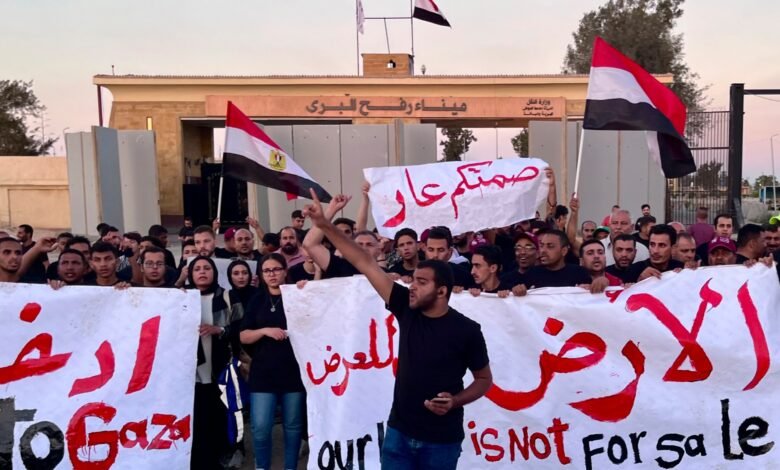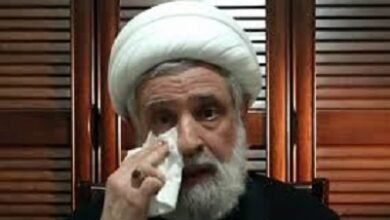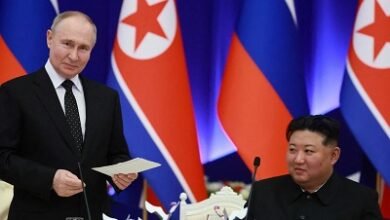
WAR-REPORT :- Since Israel began bombarding Gaza, directly after Hamas’s 7 October 2023 attack, Egypt’s priority has been to forestall any possibility that Palestinians might be displaced en masse into Sinai. From the outset, Cairo feared that Israel might seek to expel Gaza’s people or create conditions inducing their flight through intense, indiscriminate bombing and shelling that destroys civilian infrastructure.

In the early stages of the fighting, amid a drumbeat of calls from current and former Israeli officials for pushing Palestinians out of the strip, its anxiety grew.

A clear stance against such displacement, starting in mid-October, from the U.S. and other Western partners went some way toward calming Egyptian officials, but their fears resurged as ceasefire talks faltered over the following March and April. Israel’s military operation in Rafah, now under way, have exacerbated worries about Palestinians’ expulsion.
Egyptian officials from President Sisi on down repeatedly say any such action would cross a red line. They have not spelled out precisely how Egypt would respond should that line be crossed, but doubtless the relationship with Israel would suffer.

In private, some Egyptian diplomats suggest Cairo might go as far as suspending the 1979 peace treaty that brought an end to decades of formal hostilities between the countries.

Egypt’s stance is rooted partly in principle. Cairo does not want to be seen as abetting the destruction of the Palestinian national movement and its political aspirations. Egyptian officials have long feared a repetition of the events of 1948 (known as the Nakba, Arabic for “catastrophe”), when Palestinian refugees were forced to flee their homeland and subsequently barred from returning by the new Israeli state. Another Nakba could compel Egypt to permanently shelter a considerable number of refugees from Gaza.
It could shift still more of the burden of the Palestinian question onto Arab countries. The most comprehensive form of burden shifting would be the so-called three-state solution, whereby Israel would seek to return control of Gaza to Egypt and parts of the West Bank to Jordan.

Far-fetched as these ideas may sound, Egyptian officials suspect that Israel, or at least parts of its body politic, have precisely such long-term plans. Another mass expulsion or displacement, finally, would end any hope for Palestinian statehood, a cause with which Egyptians feel heartfelt solidarity.
But within Egyptian officialdom the questions of principle mingle with deep-seated anxieties about security. Egypt lost the Sinai Peninsula to Israel in the 1967 war, recovering it in full only in 1982, following the 1973 war and the diplomacy that culminated in the 1979 peace treaty.

During Muslim Brotherhood-affiliated President Mohamed Morsi’s truncated term in office (2012-2013), security agencies suspected that he might collude with Hamas, a Brotherhood offshoot, to create an Islamist alliance in Sinai.
That did not happen, but a version of the same scenario haunts security officials today. For decades, a jihadist and at times Islamic State (ISIS)-linked insurgency has roiled the northern Sinai, sometimes cooperating with militants in Gaza – though not Hamas, which opposes ISIS – and officials fear that an influx of Palestinians to the peninsula could embolden it.

They also worry that a large Palestinian population in Sinai would turn it into a staging area for attacks on Israel, leaving Egypt in the unenviable position of having to suppress such activity or suffer Israeli reprisal. From the war’s early days, they took such concerns to Egypt’s Western partners.
For the most part, world powers have adopted clear positions against such displacement. In the first few days of the conflict, media outlets reported that European leaders were dangling financial incentives, such as debt cancellation, before officials in Cairo in exchange for Egypt accepting Palestinian refugees.
On 15 October, however, U.S. National Security Advisor Jake Sullivan indicated that, “in terms of the larger question of whether those who leave can return, the United States has a very simple proposition on this: it’s [that] when people leave their homes in conflict … they deserve the right to return to those homes. … And this situation is no different”.
Since then, Western capitals have strongly opposed any notion of Palestinians being forced out of Gaza.








